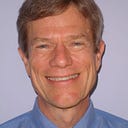Men’s Shadow Work for Alphas, Betas and Beyond

A relationship coach for men recently joked with me that most of his clients are either Assholes or Doormats representing the stereotypical alpha or beta males in popular cultural references like Suits. In researching for this blog, I discovered for the first time that those familiar types are only two of six categories designated with Greek letters from alpha to omega. Sigma and delta appear to be sub-types of the first two, while gamma is a blend of several and omega is an iconoclastic variety.
The alpha male is portrayed on TV in Suits by the quintessential power lawyer Harvey Specter, a dominating closer who is out of touch with his emotions, prone to panic attacks, and cannot maintain long-term relationships with women due to his own mother issues. His hegemonic masculinity has been shown in multiple studies to be a risk factor for depression, anxiety, poor intimacy, substance abuse, angry and hostile high-risk behavior, and the use of defenses.
The beta male in Suits is Louis Litt, the passive-aggressive, 2nd fiddle lawyer who futilely looks up to Harvey, constantly seeks approval in the office by doing favors with the expectation of quid pro quo, and continually self-sabotages his goals due to poor choices related to his low self-esteem. His ineffectual masculinity is critiqued in compelling detail in the classic 2003 book No More Mr. Nice Guy by Robert Glover who highlights the concepts of covert contracts, abandonment anxiety, and toxic shame.
The healing process for Nice Guys has been recently updated in The Integrated Man by Sidharth Agarwal, a men’s coach trained by Dr. Glover. Agarwal has also been instrumental in bringing concepts of male initiation to India through the ManKind Project (MKP) which has initiated over 75,000 men worldwide since 1985. Their New Warrior Training Adventure (NWTA) weekend program and other men’s groups fill the void in modern healthy male initiations otherwise only found in indigenous cultures.
As a young man my opportunities for initiation were limited to adventures in science and nature with my Dad, and sports teams and Christian youth groups in high school and college, as well as fraternities which I rejected during the initial pledging process. When I turned 60, male friends of mine who I respected introduced me to MKP, and I realized that it is never too late for a healthy initiation. Two weeks after my birthday I took the risk and went to the NWTA, advertised as the most intense 48 hours of your life.
One of the first steps in the process was to leave behind all but the most essential medicines (such as insulin) which meant letting go of my nutritional supplements including the herbal sleep aids I’d been taking for years. On the second night of the retreat I developed a wicked headache and sleepless agitation causing me to realize that I was in withdrawal from my nighttime remedies that I didn’t know could make me dependent. I haven’t taken them again since that revealing weekend experience.
There were many other aha moments during the training, but most importantly I let go of residual anger about my divorce from 12 years before that I’d been holding in my shoulders in the form of chronic pain. Subsequently, I’ve been able to regain my long-lost arm strength using Mark Lauren’s body weight exercises from his book You Are Your Own Gym, and I haven’t been this strong since my pole vaulting days in college. Before the NWTA I thought that would be impossible.
One of the cornerstones of MKP is ongoing support through I-Groups which meet in cities around the world to provide an opportunity for integration and application of the basic principles of authenticity, accountability and integrity. These meetings are organized around the four mature masculine archetypes based on Jungian psychology: the Lover, the Warrior, the Magician and the King. I’ve been doing this healing work for 2.5 hours twice a month with my group of 10 men for the past 8 years.
How would my life have been different if I had gone through the initiation at age 20 instead of 60? I can only imagine the impact it might have had, but I am happy to note that colleges around the country are now beginning to implement peer-mentoring group programs for young men as described by Professor James Mahalik at Boston College. Results include enhanced ability to talk about vulnerability, positive influences of upperclassmen, connecting with others, alternative social norms, and social justice.
My own coaching process has been influenced by the men’s work I have done leading me on an alchemical quest for the physical gold in the emotional shadows stored in our body’s energy system. Men who have symbolic symptoms associated with fear, anger, shame and grief may benefit from participating in my next workshop, Where the Healing Happens: Transforming Symptoms in the Lower 4 Chakras, on 3/14–16/2025 at the Art of Living Retreat Center in Boone, NC.
